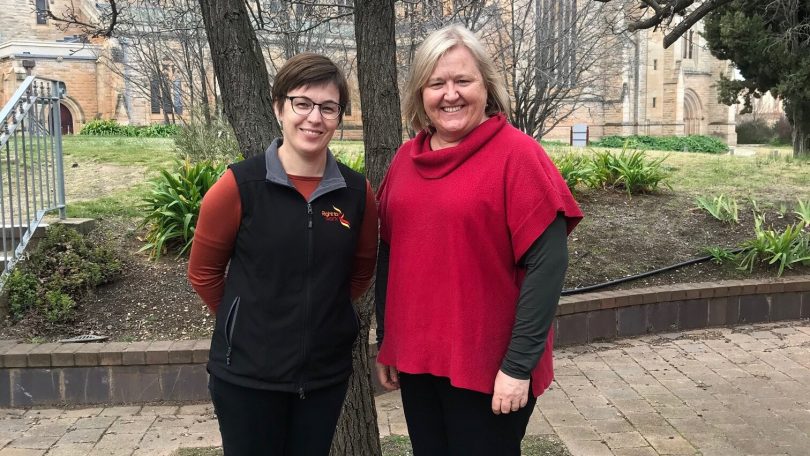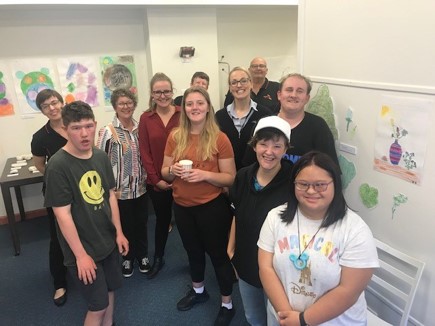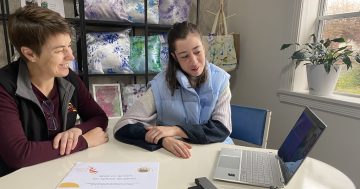
Clare Jones (left) and Carolyn Roche (right) established the Right to Work program in Goulburn. Photo: Carolyn Roche.
Like all parents, Goulburn’s Carolyn Roche only wants to see her son succeed.
With an intellectual disability and complex needs, her son finished school but Carolyn saw there were few options for him to pursue further training or enter the workplace.
So along with her son’s long-time therapist, Clare Jones, the duo started their own program: Right to Work.
The program provides young adults with autism and intellectual disabilities the opportunity to undertake work placements with local businesses to learn employability skills.
Carolyn says she wanted to establish a program that provided meaningful activities for her son that continued when she wasn’t around to organise it herself.
Clare, who has more than 12 years’ experience working with young adults with intellectual disabilities, agreed with Carolyn that there was a big gap for young people with intellectual disabilities to find real-world work experience and build their employability skills.
Most options available for young people who have high support needs, such as her son, were more about social participation and less about preparing for employment pathways, explains Carolyn.
However she is keen to point out that Right to Work is not a job placement service. Instead, it’s about building skills and enabling participants to build a portfolio they can show to an employer and say, ‘I can do this kind of work’.
Currently, the program has agreements with local clubs; Goulburn Mulwaree Council; small businesses such as retail; a medical centre; schools; libraries; and gardening centres.

People who participate in the Right to Work program get to experience a range of work placements. Photo: Carolyn Roche.
Work placements are generally between eight to 12 weeks to allow participants time to really learn some valuable skills before they rotate onto another placement to reinforce those skills in a different work environment.
“It’s also about improving inclusion in the community and supporting young people to build their independence,” says Carolyn.
Clare and Carolyn believe everyone can work. It’s about identifying the kinds of support necessary for every individual and then working out practical ways of providing these in a workplace.
“We can also provide advice to employers about how to support employees who have autism or an intellectual disability, and we aim to empower young people so they can let employers know the kind of supports they will need to do the job – for example, ‘I work best when I have a task list’, or ‘I need to have a support worker with me’,” says Carolyn.
Individuals can use their NDIS funding for the Right to Work program.
Right to Work establishes individual learning plans, and provides each learner a high level of support which is phased out as the learner becomes more independent.
“There is often an assumption that people with disability can’t do things,” says Carolyn. “Instead, we want to establish a culture that assumes you can, It’s about the right person with the right skills being in the right job role.”
Clare and Carolyn also reached out to Mill House Ventures and completed their Mill House Catalyse For Purpose Business workshop during the course of three days with the intention of learning how they could diversify the business and take their social enterprise to the next level. Following on from the workshop, they were accepted into the 2021 Mill House Ventures GRIST Social Enterprise Accelerator Program.
“We were keen to explore microenterprise business opportunities for young people as this is a really viable opportunity for people with a disability when the open market isn’t suitable,” says Carolyn.
While Carolyn believes the program could potentially expand to other locations in the future, she’s also convinced it is the tight-knit community connections that make it viable, so the program has to be embedded within a local community.
Learn more about the Right to Work program.
Original Article published by Lottie Twyford on Riotact.








